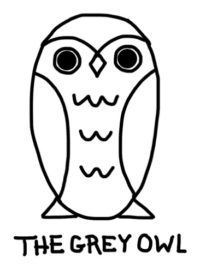
“We make a living by what we get, but we make a life by what we give.”
-Winston Churchill
Can you be a minimalist and still have a lot of stuff?
I’ve been wondering about this a lot lately. Over the past couple of years I’ve been intrigued by the minimalist and simplification movements that have attained so much popularity of late. I also recently had to move twice in one year, so pairing down ahead of time seemed like a no-brainer. I methodically went through my clothes, my books, knickknacks — I pitched and donated furniture, dishes, toiletries and just about anything else that wasn’t nailed down to avoid having to lug it across town twice.
I must say the results have been terrific. Closets and drawers are no longer stuffed to capacity, and life just seems lighter and easier now. I can find what I’m looking for almost always, tidy up my house in minutes versus hours, and I generally feel calmer and more peaceful. Additionally, the rooms in my house look better because they’re well-edited, letting my best pieces breathe and take center stage.
So it’s been great for sure, but after two years of discarding, can I legitimately call myself a minimalist? What are the qualifications? I’m not really sure. I’ve read about people who can fit all they own in a backpack, while others gleefully keep count how many trash bags they’ve kicked to the curb while Kondo-ing their clutter. If that’s the epitome, then I’m not even close.
I’ve begun to look at minimalism as a continuing personal journey toward removing any obstacles (objects, commitments, relationships, beliefs) that get in the way of my ability to live my life as I aspire to. And to the extent I find myself cleaning and maintaining at the expense of appreciating and connecting, not being able to enjoy the things I own because they are forgotten in the back of a cupboard behind a bunch of junk, or feel some deep down sense of dissatisfaction or inadequacy because I’m pining for the latest new gadget — I know my minimalism journey isn’t be over.
Reducing the distraction and preoccupation that once accompanied my clutter has allowed me greater clarity and ability to focus on my priorities. It’s also helped me use, enjoy and appreciate all that I have, while paradoxically detaching myself from those very same items. Like a dieter who loses the craving for junk food over time, I find my restless seeking out of things just to give me an emotional lift or distract me from negative thoughts and feelings has all but vanished, replaced with an increased ability to not only tolerate but embrace stillness within myself.
If your attachment to your belongings is such that your preoccupation with what and how much you have or yearning for what you don’t have becomes a distraction from more meaningful pursuits, then you’re probably not a minimalist no matter how little you own. But, at the same time, if you’re living your best life without all your stuff getting in the way, I think you can probably still be a minimalist with a fairly full house.
How’s this for a (working) definition of minimalism?
The process of self actualization through decreasing attachment and excess.
This notion of minimalism as a process rather than an outcome resonates with me and removes the performance anxiety around achieving some arbitrary standard regarding the size of my household inventory. It also allows for the notion that the outward appearance of minimalism for me will probably look very different than it will for someone else.
By ascribing a functional rather than descriptive definition of minimalism, I’m led to the belief that what seems to be required is the ability to maintain a delicate balance between enjoying and genuinely appreciating what you have, while avoiding overinvestment or identification with your “stuff” — whether that’s the stuff you already have or the stuff you still want.
Eschewing that principle in lieu of an obsessive pursuit of some magic upper limit on the number of books or clothes you own seems like missing the forest for the trees, and ironically represents an overinvestment in material possessions. The paradox of minimalism is that it’s as much of an internal evolution as it is an external one — a journey that begins with the material and leads to the ephemeral.
Moving forward, I’ll keep whittling down what I own, because I continue to derive a benefit from doing so. I may even secretly count the number of trash bags on the curb with a measure of satisfaction. But I’ll also focus on minimizing my attachment to things, remembering as often as I can that the best things in life were never the things I owned.
Ironically, in the end, minimalism is less about what we have and more about what we do. So am I a minimalist? Honestly, I’m still not sure. But I’ll let you know when I think I get there. And in the meantime, I’m enjoying the journey.

